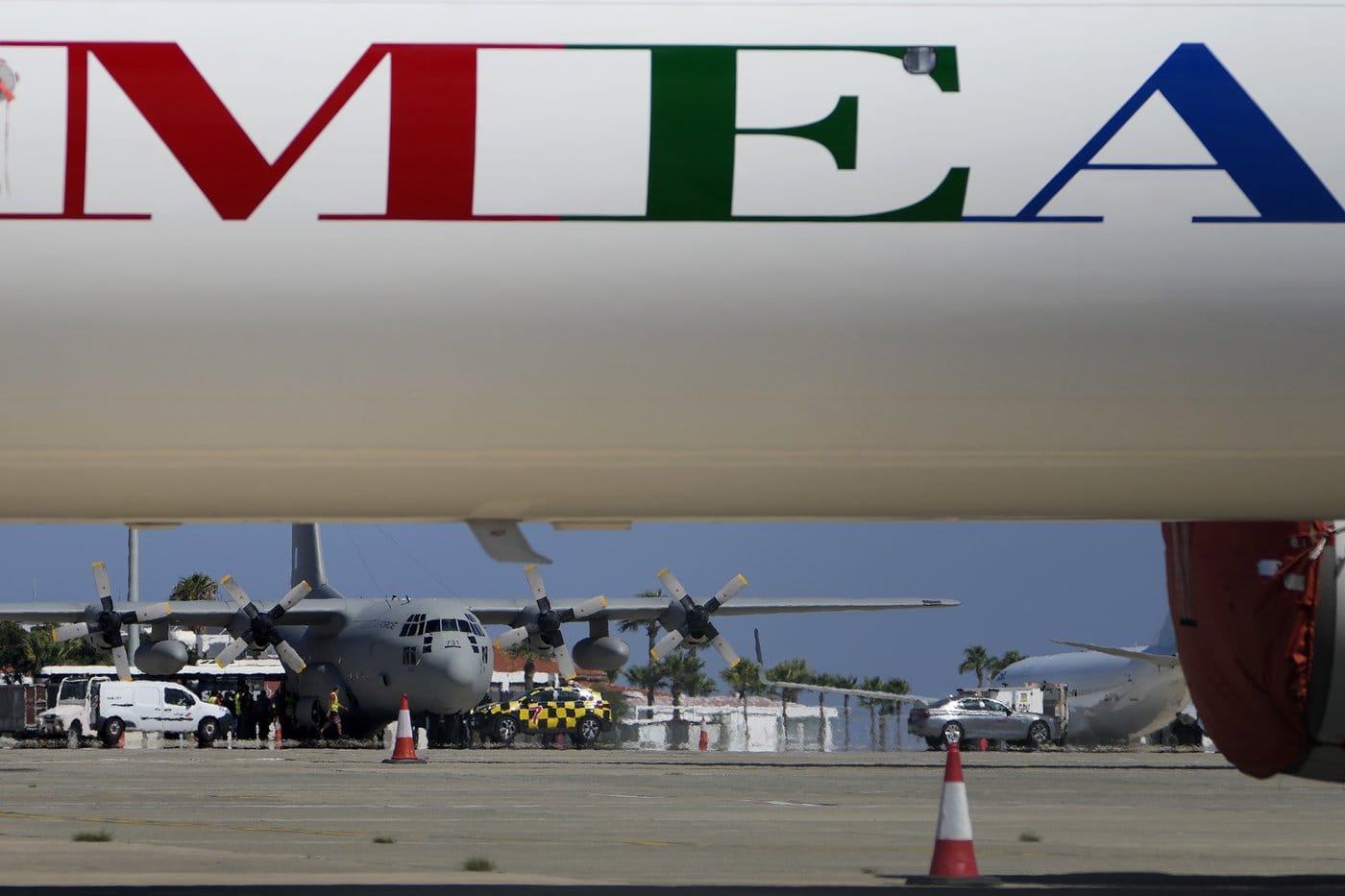Others attempt to flee, the US prepares aircraft to remove Americans from Lebanon
Over the past week, more than 6,000 American citizens have reached out to the U.S. Embassy in Beirut for information regarding departure options.

U.S.-arranged flights have successfully evacuated about 350 Americans and their immediate family members from Lebanon this week amid escalating conflict between Israel and Hezbollah, while thousands of others remain in the country facing airstrikes and dwindling commercial flight options.
In Washington, senior officials from the State Department and the White House convened on Thursday with two prominent Arab American leaders to discuss efforts to assist American citizens in leaving Lebanon.
Michigan state Rep. Alabas Farhat and Abed Ayoub, executive director of the American-Arab Anti-Discrimination Committee, emphasized the logistical challenges faced by their community members during the evacuation.
Some officials and community leaders in Michigan, which has the largest concentration of Arab Americans in the U.S., are urging the government to initiate a broader evacuation.
However, Pentagon spokeswoman Sabrina Singh stated that such measures are not currently being considered.
“The U.S. military is, of course, on the ready and has a whole wide range of plans. Should we need to evacuate American citizens out of Lebanon, we absolutely can,” Singh informed reporters.
Israel has launched extensive airstrikes deep into Lebanon and initiated a ground offensive in the southern region targeting Hezbollah, an Iranian-backed militant group.
On Tuesday, Iran fired nearly 200 ballistic missiles toward Israel, escalating fears of regional conflict and possible Israeli retaliation.
Since the Hamas attack on Israel on October 7, Israel and Hezbollah have exchanged fire almost daily across the Lebanon border, further heightening tensions.
Countries including Greece, the United Kingdom, Japan, and Colombia have organized flights or dispatched military planes to evacuate their citizens.
Nicolette Hutcherson, a longtime humanitarian volunteer living in Lebanon, described the situation as precarious.
“We could still see, hear, and feel everything,” she said, despite relocating with her husband and three children to the mountains outside Beirut.
Finding only expensive flights weeks away, Hutcherson’s family ultimately took a nine-hour evacuation journey by sea to Cyprus on pleasure boats repurposed for evacuation. Her husband managed to secure a single seat on a flight days later to join them.
The family of Kamel Ahmad Jawad, a resident of metro Detroit’s Dearborn area, mourns his death after he was killed in southern Lebanon on Tuesday while helping civilians unable to flee.
His daughter, Nadine Kamel Jawad, shared that he had been on the phone with her when an airstrike struck.
“He simply got up, found his phone, and told me he needed to finish praying in case another strike hit him,” she recounted.
For nearly a year, the State Department has advised Americans against traveling to Lebanon and urged those there to leave on commercial flights.
It has also made it clear that government-run evacuations are infrequent, offering emergency loans to assist travel out of Lebanon.
Many Americans report that relatives who are U.S. citizens or green-card holders have faced significant difficulties securing flights out of Lebanon due to limited availability and logistical challenges, compounded by Lebanon’s economic crisis, which restricts cash withdrawals from banks and disrupts electricity and internet access.
Rebecca Abou-Chedid, a lawyer in Washington, paid $5,000 for a female relative to secure the last seat on a flight out of Beirut last Saturday, shortly before intensified bombing began.
By Thursday, some Americans indicated that their loved ones had successfully obtained tickets for upcoming flights and expressed hope for their safe exit.
State Department spokesman Matthew Miller confirmed that the U.S. will continue to arrange flights as long as the security situation in Lebanon remains dire and demand persists.
He noted that Middle East Airlines, Lebanon’s flag carrier, had made approximately 1,400 seats available for Americans over the past week, with several hundred having already taken them.
Miller clarified that while he could not comment on the pricing of the airline’s flights, the maximum fare for a U.S.-organized contract flight would be $283 per person.
Over the past week, more than 6,000 American citizens have reached out to the U.S. Embassy in Beirut for information regarding departure options.
However, not all of these individuals have sought assistance, as many, including dual U.S.-Lebanese nationals and long-term residents, may choose to remain in the country.
The embassy is prepared to offer temporary loans to Americans who decide to stay in Lebanon but wish to relocate to potentially safer areas. Additionally, emergency loans will be provided to those wishing to leave on U.S.-contracted flights.





